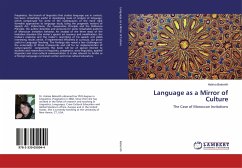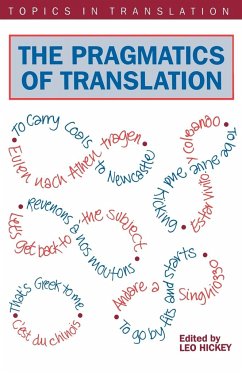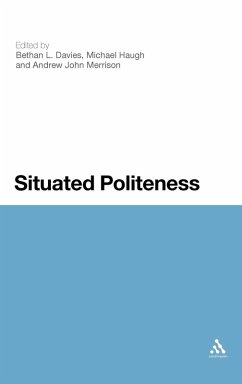
Language as a Mirror of Culture
The Case of Moroccan Invitations
Versandkostenfrei!
Versandfertig in 6-10 Tagen
42,99 €
inkl. MwSt.

PAYBACK Punkte
21 °P sammeln!
Pragmatics, the branch of linguistics that studies language use in context, has been remarkably useful in developing tools of analysis of language, which compensate for some of the inadequacies of the more rigid formalist approaches to language study. Using the pragmatic notions of Speech Act, Indirectness, the Cooperative Principle and the Politeness Principle, the author describes and accounts for some remarkable patterns of Moroccan invitation behavior. An analysis of the three steps of the invitation situation (the inviter's speech act issuance and modification, the invitee's response and ...
Pragmatics, the branch of linguistics that studies language use in context, has been remarkably useful in developing tools of analysis of language, which compensate for some of the inadequacies of the more rigid formalist approaches to language study. Using the pragmatic notions of Speech Act, Indirectness, the Cooperative Principle and the Politeness Principle, the author describes and accounts for some remarkable patterns of Moroccan invitation behavior. An analysis of the three steps of the invitation situation (the inviter's speech act issuance and modification, the invitee's response and the inviter's reworking of his speech act) yields interesting results which, if implemented efficiently in curricula, can prove useful in Language Teaching. The findings also reveal a few challenges to the universality of those frameworks and call for an implementation of culture-specific components. This book will be of special interest to students and researchers in linguistics, pragmatics, socio-linguistics, applied linguistics and cross cultural communication. It is also relevant to Arabic as a Foreign Language curriculum writers and cross cultural educators.












